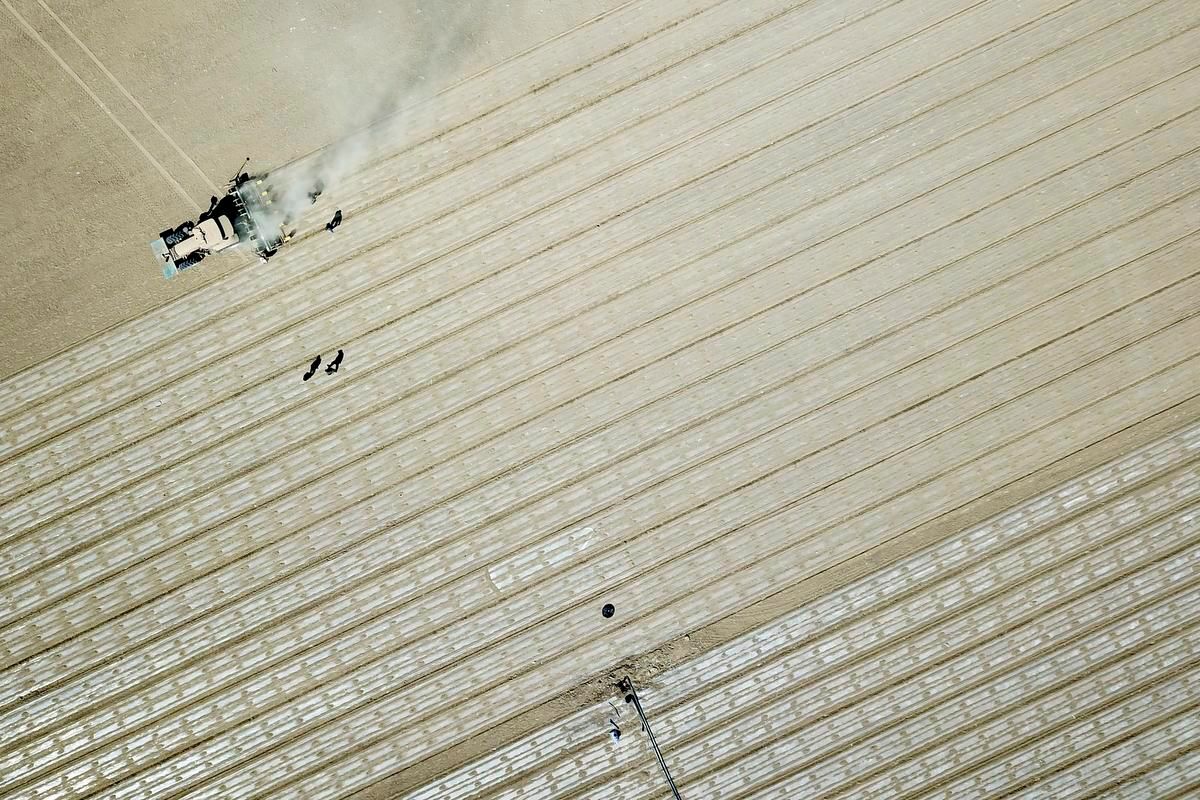
VANCOUVER—A refugee support group has filed a court application to try and force Ottawa to stop the import of goods from the Xinjiang Uyghur Autonomous Region unless it is proven the items were not made using forced labour.
Last November, Canadians in Support of Refugees in Dire Need (CSRDN) said it asked the Canada Border Services Agency to use existing legislation to ban items made in the Xinjiang Uyghur Autonomous Region but was told the agency didn’t have the authority to enforce the act by region.
“We’re calling their bluff,” said David Kilgour, a former MP and member of CSRDN.
The organization, which helps settle refugees in Canada, filed an application in federal court in Winnipeg in February. Last week Ottawa asked for a 10-day extension to respond.
The application argues the border agency has the authority to presumptively ban the import of items made in Xinjiang unless the importer can show proof they were not made with forced labour. Canada prohibits goods made wholly or in part with forced labour from entering the country, with the CBSA having the authority to stop goods if it has concerns.
The refugee agency wants border officials to automatically presume goods from Xinjiang are tainted by forced labour and prevent entry, placing the burden on importers to prove otherwise in accordance with the Customs Act.
The border agency said it would not comment on the application because it is before the courts.
There has been increased international scrutiny on Beijing’s actions in Xinjiang following reports of human rights abuses against Uyghurs and other Turkic ethnic groups. China’s government has denied the allegations.
More than 1 million Uyghurs have been sent to what the Chinese government calls “vocational training centres” but others, including witnesses at a federal government subcommittee last year, say they are indoctrination camps where torture and sexual abuse have taken place.
Human rights organizations have also raised concerns that Uyghurs are being forced to work in factories across China.
David Matas, a human rights lawyer working on the CSRDN application and member of the group, said both the Customs Act and the Customs Tariff already put the onus on those importing goods to ensure they are made without forced labour.
“Every single good that comes in, the onus is on the person,” Matas said in an interview. “So why should it be different when they’re dealing with a region?”
Matas argues the border agency could use the Customs Act to prevent merchandise from Xinjiang entering the country unless the importer presents “clear and convincing evidence” the goods were not made from forced labour.
He said if the judge rules in CSRDN’s favour, and the border agency refuses to act, the refusal could be challenged in court.
Meanwhile, proposed legislation in the U.S. would place a blanket ban on all items from Xinjiang, leaving the onus on the importer to prove they were not made with forced labour. The Uyghur Forced Labour Prevention Act is still before the House of Representatives but has also been folded into a China omnibus bill known as The Eagle Act.
The Star and Guelph Mercury Tribune published a joint investigation earlier this year detailing how items made from companies accused of using forced Uyghur labour in China were making their way into Canada. The companies found to be making the items were sanctioned by the United States over such concerns.
Last July Ottawa made changes to the Customs Tariff to prevent items made from forced labour from entering Canada. It also announced new measures in January meant to discourage such products from entering the country, including a Xinjiang integrity declaration for Canadian companies.
As of March not a single shipment had been stopped.
Kilgour said the court application essentially pressures the government to act on statements it has made about forced labour products coming into Canada.
“You can’t talk out of both sides of your mouth on this and the government seem to be saying that they’re concerned about it,” he said. “So why don’t they do something?”
https://www.thestar.com/news/canada/2021/06/13/refugee-group-hopes-to-push-canada-to-ban-goods-from-xinjiang.html

